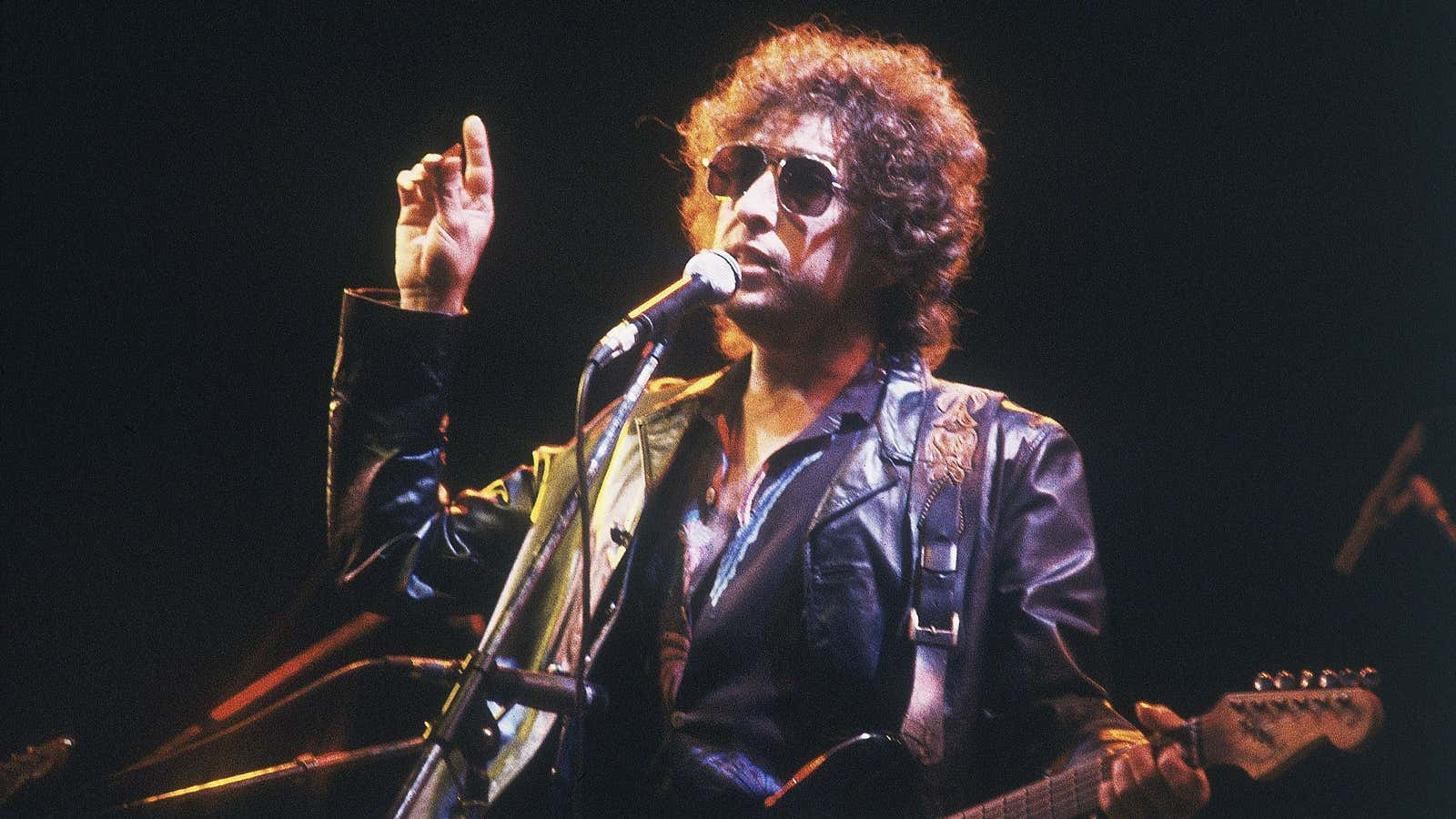In 1997, while playing a concert in New Brunswick, Canada, Bob Dylan dedicated the song “Desolation Row” to Allen Ginsberg, the renowned Beat generation poet and Dylan’s longtime friend, who had died the night before. Twenty years prior, Ginsberg had actually interviewed Dylan and asked him about death, immortality, and art—but that particular conversation was previously unknown until now.
On Nov. 8, journalist and author Steve Silberman discovered the interview transcript in a box of old files. (In 1977, Silberman was actually studying under Ginsberg at Naropa University’s Jack Kerouac School of Disembodied Poetics in Boulder, Colorado.)
As Silberman mentions, the 14-page interview is largely concerned with Renaldo and Clara, a four-hour film Dylan both directed and starred in. The movie, which features documentary footage from Dylan’s Rolling Thunder Revue tour interspersed with acting performances from Dylan and his contemporaries, including Ginsberg, premiered in 1978 to mainly negative reviews. But in the interview transcript, before the artists start discussing the film at length (“The movie that you never dreamt, that you wish you’da dreamt,” Dylan calls it) Ginsberg asks Dylan what he looks for in movies.
“To shift my consciousness somewhere—hopefully to a place that applies to my own personal experience,” Dylan says. Although Dylan begins to muse about how Leonardo da Vinci would have made films had the technology been available at the time, he soon starts speaking about art in general:
“Before the 19th century people painted what they were paid to paint. They weren’t painting anything individual. Look at Bosch—there’s no struggle. There’s no struggle in any of Dali’s paintings. Life is a struggle. If you want to do business and create work, then you struggle; if your struggle shows, then you make it […] We try to make something better out of what is real. If we want to be successful as an artist, we make it better, and give meaning to something meaningless.”
When Ginsberg asks “What’s your idea of better?” Dylan explains that it involves creating “something lasting” enough to stop time, a concept he is clearly fascinated with:
“You want to live forever, right Allen? Huh? In order to live forever you have to stop time. In order to stop time you have to exist in the moment, so strong as to stop time and prove your point. So that you have stopped time. And if you succeed in doing that, everyone who comes into contact with what you’ve done—whatever it might be, whether you’ve carved a statue or painted a painting—will catch some of that; they’ll recognize that you have stopped time—they won’t realize it, but that’s what they’ll recognize, that you have stopped time. That’s a heroic feat!”
For Dylan, creating a body of work that both preserves a moment and endures beyond his death is the meaning of immortality. (He won the Nobel Prize for Literature in 2016 for creating “new poetic expressions within the great American song tradition,” so he is already on his way to lasting renown.) When Ginsberg asks Dylan simply, “Do you want to be immortal? And why?” The singer-songwriter-poet’s answer again confirms his interpretation of the concept:
“I’d like my work to survive, yeah.”
You can read the entirety of the previously unknown interview here (pdf).
